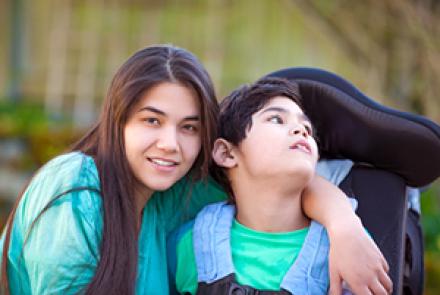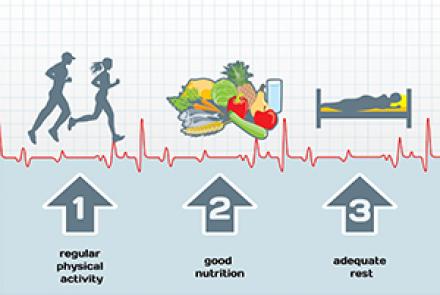
Approximately 34% of women with PCOS have depression. Dr Madanki Srinavasan, Gynaecologist and women’s health counselor helps us understand lifestyle changes to manage PCOS.
Along with weight gain, unwanted hair growth, acne, irregular periods etc, women with PCOS (Polycystic Ovarian Syndrome) also frequently suffer from mental health issues such as anxiety and depression.
Can stress be a risk factor for PCOS?
Stress can be a risk factor for any medical ailment, including PCOS. Stress activates certain hormonal circuits in our body which includes the hypothalamus, pituitary and adrenal glands to disturb the hormonal rhythm and cause further metabolic disturbance which is already inherent to PCOS.
How does PCOS affect the mood?
PCOS is a condition involving hormonal and metabolic disturbance, especially that of androgen and insulin resistance. These lead to various unpleasant physical conditions like weight gain, acne, hirsutism, dark patches on the skin, etc. which in turn lead to poor self-image and esteem in young girls and women, thereby affecting mood.
Why does PCOS cause depression?
Delay in the diagnosis of PCOS and inability to cope with the associated physical and emotional changes can be a major causative factor leading eventually to frustration and depression. Problems related to body image, self- esteem, lifestyle and stress, genes, personality and thinking, relationship, etc all these can adversely affect one’s acceptance of the condition and lack of coping mechanisms and cause anxiety and stress, which if not addressed early on can lead to depression.
What are the different types of depression a woman with PCOS can suffer from?
Depression in PCOS patients may be
- Physiological- due to hypothalamic, pituitary and other end organ disfunctions.
- Psychological- due to the clinical sequalae of hirsutism, acne, obesity, fear of infertility and psychological distress which may damage their self- esteem and female identity
Depression may also be clinical or sub-clinical.
What treatment options can control depression?
A diagnosis of depression should not be loosely made just based on certain mood fluctuations and anxiety. It has to be a clinical diagnosis made either by an aware physician, a psychologist or by referring to a psychiatrist. To start with a proper diagnosis based on investigation of the metabolic parameters, USG, and clinical examination, followed by connective measures including lifestyle modifications, diet, exercise, correction of cycle irregularities and cosmetic correction to enhance body image can alleviate to a great extent. Referral to a counsellor and/or a psychiatrist may be warranted.
Does treatment of PCOS reduce psychosocial issues automatically?
The duration of symptoms and the time taken to make an accurate diagnosis of PCOS is an important marker for response to treatment. Correction of hormonal and metabolic imbalance along with lifestyle changes, exercise, diet, supplements, cosmetic treatments, and psychotherapeutic support will all be required in combination to make the treatment holistic. Automatic reduction in psychosocial issues cannot happen by treating PCOS – in fact the patient’s approach, perspective, acceptance, compliance and willingness to be treated along with cognitive modification will have a huge impact on the improvement in her mental state.
What lifestyle changes would you suggest for improvement of mood in PCOS patients?
A healthy lifestyle is most crucial to manage PCOS successfully-
- Healthy diet with adequate does of vitamins, minerals and supplements.
- Loss of excessive weight will help reduce symptoms, reduce chances of developing type II diabetes mellitus and cardiovascular diseases. Even a 5-10% reduction in weight can have significant health benefits, including improvement of mood and fertility, regular menstrual cycles and reduction and risk of diabetes.
- Being physically active, increases energy levels, increases self- confidence and motivation, reduces anxiety and depression.
Are there any foods or supplements that can help?
The scientific input by a dietician will surely help, who can work out a diet plan customized to each individual patient based on BMI, lifestyle, level of activity, calorie requirements, etc. Additionally, superfoods rich in vitamins, other nutrient and anti-oxidants can help, example cinnamon, salmon, lettuce, broccoli, wheat germ, kale leaves, liquorice, and the list goes on. The Ob/Gyn can also prescribe in a tablet/capsule form some of these supplements.
Related Reading: How do I deal with PCOS
Why does PCOS lead to shame and isolation?
The reasons for the same can be manifold:
- Lack of awareness and knowledge regarding the symptoms and pathophysiology of PCOS
- Suffering from symptoms- yet far from a conclusive diagnosis
- Cosmetic concerns which impact self-image and self-esteem – fair, clear skin, good looks and good figure are so central to self-confidence, that this takes a toll on mental health, leading to shame and isolation. They feel not feminine enough due to coarse facial features, acne, facial hair, dark skin patches, etc and also may be bullied at high school and work places.
- This directly or indirectly affects libido, and impacts relationship.
- Last but not the least, reduced fertility is also a major cause of social isolation.
















